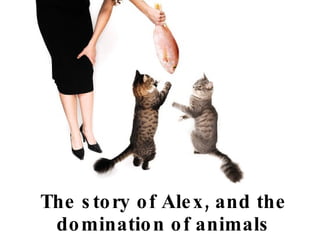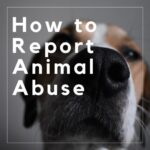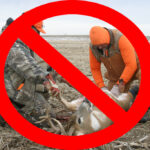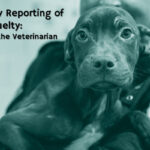The term “pet owner” pervades social discourse, dominantly infiltrating our everyday vernacular and shaping the perception of the human-animal relationship. Yet, this nomenclature evokes critical questions about the inherent dynamics of companionship and stewardship. Why do people elect to identify as ‘owners’ of pets, and does this designation carry consequential implications? This essay elucidates the underlying significance of this descriptor, juxtaposing it against the backdrop of respect, responsibility, and the essence of animal companionship.
To embark on this inquiry, it is paramount to dissect the implications of the term “owner.” In contemporary language, the word connotes dominion, absolute control, and possession. It implies a hierarchical structure where the individual stands above the entity—at times, even as a benevolent guardian. This representation reflects a broader societal view wherein humans are perceived as the apex of the animal kingdom, authorized to delineate the scope of existence for the creatures they keep. This perspective breeds an uncomfortable dualism: while humans may love their pets and strive to care for them, referring to them as “owned” invokes images of property rather than partnership.
Critics of the term point out that labeling oneself as a pet owner can inadvertently reduce the complexity of the human-animal bond. Just as one may possess an inanimate object—like a chair or a car—this notion strips away the emotional substratum that defines the interdependent relationship shared between humans and their companions. In essence, pets are not just possessions; they are sentient beings capable of profound emotions, loyalty, and affection. Thus, the language we employ to describe this relationship holds significant sway over how society perceives and treats these animals.
Furthermore, the implications of this terminology resonate beyond personal interactions; they infiltrate legislative realms, societal norms, and the ethical constructs surrounding animal welfare. For instance, pet ownership often entails legal responsibilities, such as licensing and vaccination. Yet, a cursory glance at animal cruelty laws reflects a dissonance. In a system where animals are treated as property, the penalties for mistreatment may be alarmingly lenient, interpreting harm to a pet as akin to damage to property rather than an affront to the individual’s well-being. This underlines an unsettling reality: the identity of ‘owner’ may inadvertently perpetuate an ethos wherein animals are exploited for human amusement, profit, or convenience.
Examining alternative terminologies reveals a myriad of philosophical positions. The term “guardian” emerges as a viable substitute, encapsulating the idea of stewardship without the implications of ownership. This paradigm suggests a relationship characterized by mutual respect and obligation rather than possession. Under this lens, humans are seen as caretakers of another species, custodians responsible for the welfare of their charges throughout their lifetimes. Such terminology shifts the emphasis from dominion to duty, fostering a culture of empathy and stewardship in animal interactions.
However, the transition from “owner” to “guardian” is not merely a semantic alteration; it encapsulates a fundamental shift in mindset. Embracing the role of a guardian entails a recognition of the intrinsic value of animal lives, alongside an understanding that these beings have their own needs, desires, and rights. The emotional connection between humans and pets, rooted in dependency and affection, flourishes under this framework. When humans transcend the role of an “owner” and embrace the ethos of guardianship, the potential for deeper bonds and enriched experiences emerges.
Nevertheless, the challenge persists. The lexicon surrounding pets continues to be steeped in a culture that privileges ownership. Many people, consciously or unconsciously, gravitate towards this identity because of its ingrained familiarity. Societal acceptance of “pet owner” is widespread; thus, to challenge it sometimes invites resistance, derision, or outright dismissal. Yet, adopting a more inclusive and respectful terminology is paramount in dismantling the entrenched perceptions that uphold animal exploitation and neglect.
In delineating the nuances of what it means to be a pet owner, it becomes evident that the labels we use have far-reaching implications, shaping not only personal identity but also societal attitudes toward animal rights and welfare. By reframing our lexicon and eschewing the moniker of “owner” in favor of “guardian,” we can advocate for a paradigm that values animals as companions deserving of dignity, empathy, and protection.
In conclusion, the onus lies on society to engage in reflective discourse regarding the language we utilize to describe the relationship we hold with our animal companions. It is incumbent upon individuals to ponder their terminology, assess their motivations, and recognize the potential impact of their words. By embracing a shifting narrative that elevates animals from mere possessions to beloved guardianship, we can pave the way for a future wherein the interspecies bond is characterized by mutual respect, responsibility, and love—enabling a deeper understanding of what it truly means to share life with another being.






